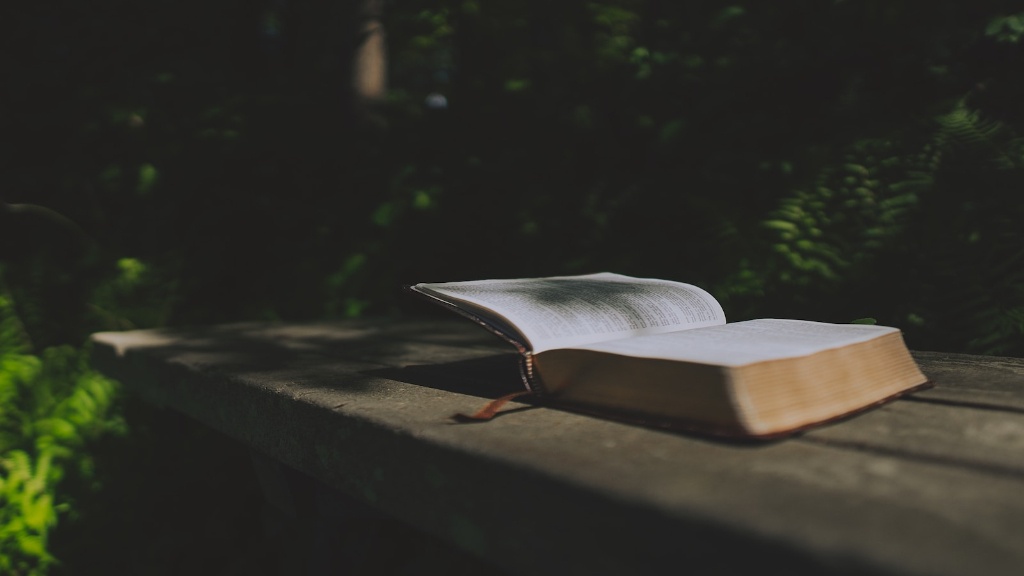Walt Whitman is considered by many to be one of the most influential poets in American literature. He is widely known for his works “Leaves of Grass” and “Poems of Walt Whitman” and has been credited with helping to define a new style of American poetry. But, despite his wide-reaching influence, there has been much debate surrounding Whitman’s religious beliefs. While some scholars suggest that Whitman was an atheist, others believe that he was a spiritual, though non-conformist, individual.
Many of Whitman’s close biographers, including Gay Wilson Allen, argue that Whitman was likely an atheist. Allen points to various texts written by Whitman in which he ‘decries traditional religion’ and praises the Bible as mere literature, rather than as a spiritual text. Allen also argues that Whitman’s idea of a ‘Cosmic Moment’ and his concept of the universe being connected to the individual is more aligned with atheist ideology than with religious belief.
Conversely, some scholars point out that while Whitman may not have subscribed to any particular faith, he was certainly not an atheist. They suggest that the religious imagery and themes used in Whitman’s works, including his poems and essays, point to him having a higher power belief. Additionally, scholars point to Whitman’s idealization of nature and the reverence he had for mysticism and nature’s power as further evidence against him being considered an atheist.
Despite the differing opinions, it is clear that Walt Whitman was an individual who thought and felt deeply. Whitman would often spend large amounts of time reflecting and meditating on his surroundings and on the topics of religion and philosophy. While it is likely that he did not actively adhere to any particular faith or set of religious beliefs, it is also likely that he had a spiritual understanding of the world and his place within it.
Whitman’s Views on Religion
While it is difficult to definitively state whether or not Whitman was an atheist, it is clear that he had a distinct view of religion and its role in modern life. In his essay “Quakers and Others”, for example, Whitman wrote, ‘I do not expect religion, only spirit, inspiration, the moments of insight lifted above all creeds, that exist oldest and best in each of us—that comes finally to recognize and to enjoy, the mysterious beauty and profundity of moral science and the moral sentiment.’ This sentiment indicates that while Whitman certainly did not identify as religious, he still held respect for those who did and believed in the power of spirituality.
Whitman’s Influence on American Literature
Regardless of his opinion on religion, Whitman had a profound influence on American literature, ushering in a new style of writing. Whitman’s focus on the individual, nature and life’s spiritual power resulted in him writing works that were passionate and often challenged the status quo. His works, including “Leaves of Grass” and “Poems of Walt Whitman”, are credited with helping to shape a new identity for American literature, which many scholars believe was crucial in establishing the nation as having a unique literary tradition.
Conclusion of Whitman’s Religious Beliefs
Given the evidence, it appears that Walt Whitman was not an atheist nor was he religious in the traditional sense. Rather, he held a spiritual understanding of life, which likely came from his deep reflections and his time spent in nature. While his religious beliefs remain a topic of debate, there is no denying his influence on American literature, which continues to be felt today.
Impact of Whitman’s Work Today
Whitman’s influence on American literature has been felt in works by various poets, authors and cultural figures throughout the years. His work has been praised by some of the greatest minds in the literary world, including Ezra Pound, T.S Eliot and Herman Melville. Additionally, Whitman’s work has been celebrated in song, film, television and art, making his work a cornerstone of American culture.
Reception of Whitman’s Work During His Conceration
While Whitman’s work has been championed by many scholars and cultural figures, it was not always well-received during his time. When the first edition of “Leaves of Grass” was published in 1855, it sparked backlash from the public due to its frank discussion of sexuality and its irreverent attitude towards religion. Although some defended Whitman’s work, it was ultimately banned in some libraries and denounced by some religious groups.
Usage of Whitman’s Work in Education
Despite the controversy surrounding Whitman during his time, his work is now widely taught in schools and universities. Many of Whitman’s works are considered American classics and are used in literature classes around the world. His works have also been translated into various languages, making their impact far-reaching and truly global in scope.
The Legacy of Walt Whitman
Today, Walt Whitman is remembered as one of the greatest American poets ever. His legacy is one of innovation, challenge and inspiration, which is apparent in his works, which continue to be celebrated and dissected by scholars and readers alike. His works are considered masterpieces of American literature, leaving no doubt as to his influence on the broader culture.


